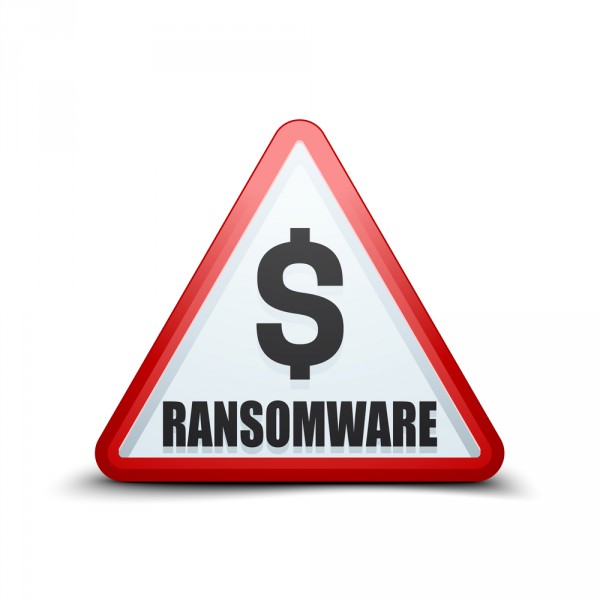
New spyware seeks to blackmail Android and iOS users
Researchers at mobile device security company Lookout have uncovered a new strain of spyware targeting iOS and Android users in multiple Asian countries.
Called Goontact, it targets users lured to illicit sites and steals personal information stored on their mobile devices in order to carry out sextortion scams.

The top eCommerce shipping frauds and how to prevent them
The holiday period is a peak time for eCommerce fraud. And according to research from fraud prevention specialist Datavisor it's on the rise.
Shipping fraud (in which fraudsters divert stolen goods to their own address) in the US increased by 37 percent and billing fraud (in which fraudsters use a victim’s stolen address to purchase goods) increased by 34 percent.

Parcel delivery phishing scams up 400 percent in November
Researchers at Check Point have seen a 400 percent increase in phishing scams using DHL, Amazon and FedEx branding to try to get people to part with information during the peak online shopping period.
Two weeks ago, Check Point researchers documented an 80 percent increase in malicious phishing campaigns targeting online shoppers with 'special offers.' The latest spike uses subject lines like 'track your shipment' and 'delivery problem.'

Cybercriminals target loyalty programs in search of easily traded data
Consumer loyalty programs in the retail, hospitality and travel industries rely on gathering information about their users. For criminals this can offer everything they need to get started in a number of crime-related ventures, from account takeovers, to straight-up identity theft.
A new report from Akamai reveals more than 63 billion credential stuffing attacks on the commerce category -- comprising the retail, travel, and hospitality industries -- over the last two years, 90 percent of them against retailers.

Hackers turn to new tactics to make attacks more effective
Some nation-state cyber adversaries and notorious ransomware gangs are deploying an arsenal of new open-sourced tools, actively exploiting corporate email systems and using online extortion to scare victims into paying ransoms.
This is one of the findings of Accenture's latest Cyber Threatscape Report. Analysts have seen attackers using a combination of off-the-shelf tooling -- including 'living off the land' tools, shared hosting infrastructure and publicly developed exploit code -- and open source penetration testing tools to carry out cyberattacks and hide their tracks.

Attackers use Office 365 tools to steal data
Targeting of SaaS user accounts was one of the fastest-growing problems for organizations, even before COVID-19 forced a rapid shift to remote work, but a new report shows cybercriminals are using built-in Office 365 services in their attacks.
The study from network detection and response company Vectra, based on four million monitored Office 365 accounts, shows that 71 percent of of those surveyed had seen suspicious Office 365 Power Automate behaviors.

New offering aims to simplify cyber insurance for small and medium businesses
With cyberattacks increasing in volume and new types of incidents occurring, businesses need protection for everything from network intrusion to ransomware and all the things in between.
Many organizations are turning to cyber insurance to provide cover for dealing with incidents and their aftermath, but a recent report shows that many are put off by not understanding levels of exposure, amount of cover, and by cost.

Indian cybersecurity market set to hit $3 billion by 2022 but tech-savvy youngsters turn to crime
A new report shows that India is increasing its cyber capabilities and becoming a growing cyber powerhouse with its cybersecurity market expected to rise from $1.97 billion in 2019 to over $3 billion by 2022.
But the study from threat intelligence platform IntSights also shows that the country has a growing cybercriminal underground. A young, tech-savvy population with limited access to careers in the domestic tech sector is at risk of being lured into cybercriminal activities to provide for their families.

Cybercriminals seek to capitalize on COVID-19
Starting in March and continuing through most of the spring, there has been a significant increase in malicious emails utilizing various COVID-19 issues as a lure to manipulate users into exposing themselves to various email attacks and scams.
The latest Attack Landscape report from F-Secure shows COVID-related emails range from attempting to trick users into ordering face masks from phony websites to infecting themselves with malware by opening malicious attachments.

How cybercrime impacts the charity sector [Q&A]
Charities handle billions in funds every year and hold financial and personal information that cybercriminals increasingly see as a tempting target. Yet, according to the UK's Charity Commission only 58 percent of charities think they are at risk from cybercrime.
But for a sector, whose success is built on its reputation and the goodwill of its supporters, the loss of any sensitive information or fraud through phishing attempts can be devastating.

We're too boring to be hacked say millennials
Research into changing 'digital comfort zones' during the pandemic shows that 37 percent of millennials think they're too boring to be a victim of cybercrime.
The study from Kaspersky finds that millennials are now spending almost two extra hours online every day and almost half say this has made them more aware of their digital security, with 36 percent saying that they should be doing more to strengthen it.

Cybercriminals use new techniques to target eCommerce sites
With bricks and mortar stores largely shut down for much of the first half of 2020, it’s no real surprise to find that cybercriminals have been targeting eCommerce sites.
New research from IntSights looks at how there has been a rise in cybercriminals targeting eCommerce sites using a variety of attack methods, such as skimming attacks, account takeovers and ransomware.

Fake content drives online fraud
Based on a study of 34,000 sites and apps, as well as a survey of over 1,000 consumers conducted in June 2020, new research details how content abuse is a critical part of the fraud supply chain, the interconnected ecosystem of fraud.
The research, carried out by digital trust and safety firm Sift, also uncovered a fraud ring based in Russia where fraudsters executed a card-testing scheme through fake listings on an e-commerce marketplace.

What's your data worth on the Dark Web?
We all know that information stolen in data breaches is often put up for sale on Dark Web marketplaces. But how much is it actually worth?
The PrivacyAffairs website has been researching Dark Web forums and market places and has found that for less than $1500 criminals can obtain genuine information and forged documents allowing them to almost completely take over someone's identity.

Cyber ransom demands up 200 percent in 2019
Requested amounts in ransomware attacks rose nearly 200 percent from 2018 to 2019, averaging $115,123 per attack last year.
A report from incident response, risk management and digital forensics firm Crypsis Group reveals that threat actors across a range of cyberattack types have significantly escalated their tactical approaches, becoming more targeted, conducting victim research and employing techniques that enable them to be more successful and extract higher payouts for their efforts.
